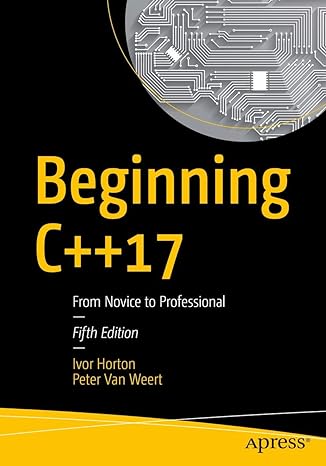Programming language evolution allowed many high and low-level programming languages to become popular among programmers for software development. The C programming language was accepted due to optimized software design principles and programming language evolution in robustness, closest, functional high-level programming language. Based on the C programming language evolution, C++ – object-oriented programming was developed by Bjarne Stroustrup and still is the choice due to continuous C++ standardization for developers. The Stack Overflow Developer Survey 2023 reported that 32% of learners were using C++ compared to professional developers (20%), second only to Java.
Table of Contents
- The Origins and Evolution of C++
- Key Features and Innovations in C++ Over the Years
- The Role of C++ in Contemporary Software Development
- Future Directions and Developments in C++ Programming
- FAQs
The Origins and Evolution of C++
The origin of C++ dates back to 1979 when a Danish computer scientist, Bjarne Stroustrup, developed C++ for software development based on the C programming language evolution which itself was developed earlier in 1972 by Denis Ritchie at Bell Labs. It focused on widely appreciated software design principles. C++ gained popularity due to C++ standardization early on and became the de facto programming language for learners and professional developers. Like the C programming language, the TIOBE index reveals that C++ has never held a lower position than 4 in the top 5 programming languages in the world since 1998 – for over 25 years.
Key Features and Innovations in C++ Over the Years
Over the years, C++ has evolved on recognized software design principles via C++ standardization to become a powerful language with memory control for software development. It bundles features like object-oriented programming and STL that make it highly functional. Smart pointers, contexpr, and lambda expressions have enhanced C++’s capabilities to new levels. These features in C++, developed originally by Bjarne Stroustrup were based on C programming language evolution and are constantly evolving.
The Role of C++ in Contemporary Software Development
Bjarne Stroustrup developed C++ with its ability to control the underlying hardware for efficient software development. This powerful feature makes C++ an ideal choice for applications where program and hardware efficiency and security are vital. This is why, in modern software development, C++ is among the top choices for developers of Games and Embedded Systems (e.g., IoT). Similarly, contemporary software development requires a fast-paced learning curve. Engaging help with C++ assignment experts accelerates this activity.
C++ packs amazing capability to balance the strong control of hardware like a low-level programming language and, at the same time, offer ease of use like a high-level programming language.
Future Directions and Developments in C++ Programming
Artificial Intelligence (AI) and Machine Learning (ML) have taken the world by surprise, and their applications are far-reaching. Future development of C++ must incorporate AI, high-performance computing, and ML for edge and IoT software development. C and C++ programming languages are shifting towards security and performance optimization for robust software experience.
Understanding C++11 Features: A Major Milestone
C++11 features brought revolutionary software design principles compared to its previous versions. We list the top C++11 features below. To give you a recap of what this release felt like, Bjarne Stroustrup said, “C++11 feels like a new language” for software development. Some of the most prominent C++11 features introduced via C++ standardization are listed below:
- Type deduction (Auto)
- constexpr (evaluate an expression at compile time)
- Range-based loop iterations
- Better code readability
- Lambda expression
C++ in the World of High-Performance Computing (HPC)
In 2022, the High-Performance Computing (HPC) industry was valued at $47,086.1 million. For high-performance computing, efficient and robust software based on software design principles matters just as much as hardware. C++ is based on established software design principles of Object-oriented programming and vigorous hardware control; it better optimizes bottleneck management, enabling maximum hardware performance.
Balancing Language Complexity and Power in C++ Design (60)
Programming language complexity in code refers to the readability and maintainability of the program, whereas power refers to the design and code’s functionality. Balancing the power and language complexity is crucial to the overall code’s true influence. Object-oriented programming such as C++ offers hardware control for software development, providing great memory management and effectively prioritizing robust code. Whereas the modularization and Resource Acquisition Is Initialization (RAII) capability allows for an optimized language complexity.
FAQs
What are the origins of the C++ programming language?
Originally, Bjarne Stroustrup built C++ as an extension of C programming language for software development, designed at Bell Labs in 1972. The C programming language evolution aimed at introducing the concept of Object-Oriented Programming which was well received in the community.
How has C++ evolved over the years?
Originally built and developed in Bell Labs on concepts from C programming language, C++ is an Object-oriented programming language that has evolved from introducing concepts like the Object-Oriented Programming paradigm to key innovations such as the Standard Template Library (STL). C++ has developed increased safety and performance optimization for modern needs since then.

Master modern programming with Beginning C++17 – your gateway to building powerful, efficient, and future-ready applications!
View on Amazon
What are the key features of C++11?
Some of the new features, other than balanced language complexity introduced in C++11, are given below:
- Auto type deduction
- Enhanced code readability
- constexpr





